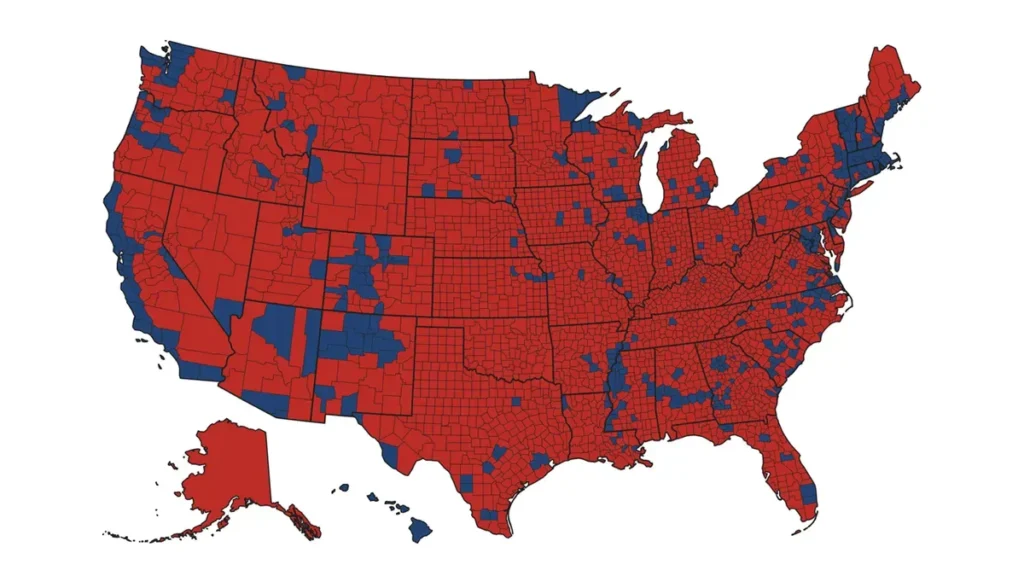On November 5th, the American electorate presented a striking political mandate to Donald Trump, marking a significant moment in contemporary political history. His reelection yielded a historic popular vote count, surpassing even his own previous record from 2020 with 77 million votes, a remarkable increase of three million. In the electoral college, Trump garnered 312 votes, making this victory a resounding endorsement from the American public. This overwhelming support, achieved amid significant turmoil—including multiple assassination attempts and continuous legal challenges—suggests an extraordinary moment in American politics, defined by a counter-narrative to years of adversarial forces aligned against Trump.
The opposition Trump faced was unprecedented, encompassing various influential institutions, including Hollywood, mainstream media, and academic establishments. This collective resistance was propelled by a competing ideological framework that supported globalism, open borders, and Marxist principles, starkly contrasting with the traditional American values rooted in constitutional governance and self-determination. Kamala Harris and her political ideology symbolized this countermovement, which prioritized issues like foreign warfare and attacks on moral and social norms. The campaign thus revolved around a crucial query—how much of the original American spirit remained, and whether voters recognized their inherent duty to combat rising tyranny, a duty they, albeit later than necessary, ultimately embraced.
The implications of this electoral victory extend beyond just holding the presidency; for the first time in decades, the Republican Party secured control of both congressional chambers, giving them an unprecedented opportunity to implement their agenda. This popular mandate, while tainted by allegations of electoral fraud and corruption in key cities, underscores the magnitude of public support for Trump’s cause. The election’s context—marked by legal entanglements and accusations—further accentuates the resilience of the Trump mandate. The absence of a complete eradication of election irregularities did not deter the voters; rather, the win symbolized a collective decision to prioritize constitutional principles and self-governance over established partisan dynamics.
Critics attempting to reframe Trump’s victory as a mere reaction to inflation or the crises surrounding foreign affairs and immigration miss the broader significance of the election. It represented a decisive stand against the entrenched powers that employ unconstitutional measures to manipulate public sentiment and governance. The demand for accountability and the reclamation of the democratic process can be understood as fundamental tenets of the Make America Great Again (MAGA) movement. This movement challenges the bureaucratic elite, advocating for a governance structure rooted in popular sovereignty and the rejection of modern liberal ideologies that have increasingly infiltrated American institutions and social fabric.
The implications of the MAGA ideology extend into calls for comprehensive governmental reform, particularly targeting institutions perceived as having deteriorated civic identity and prioritizing social justice over foundational American values. The rejection of modern liberalism’s focus on equity at the expense of merit signals a cultural shift, as voters began to renounce a narrative that promoted guilt and self-loathing regarding American history. The political energy harnessed by the MAGA movement serves as a counterpoint to the forces that have sought to dismantle longstanding traditions, from the re-naming of monuments to the critique of foundational moral values, revealing a robust resolve among citizens to defend their heritage.
While the future remains uncertain, the political landscape suggests a long-term battle against the ideologies that have influenced America’s recent past. The unearthing of corruption and abuse of power, illustrated through the aggressive pursuit of Trump and his supporters by elements of the political left, necessitates that the aspirations of the MAGA movement are realized. Trump’s mandate represents not merely a political victory but a clarion call for a more profound ideological awakening among the American populace. This awakening urges citizens to confront the social and institutional challenges posed by what figures like Elon Musk refer to as the “Woke Mind Virus.” Ultimately, the American electorate has expressed a desire to reclaim its legacy and restore integrity to its political system, striving towards a revitalized identity that honors its past while aspiring to a more stable and prosperous future.

